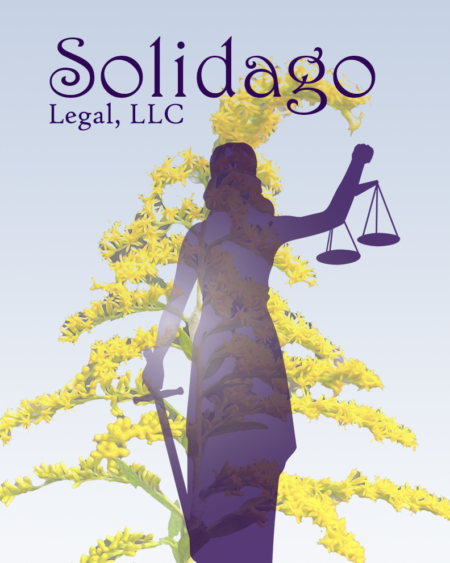Estate Planning and
Advance Directives

Estate Planning and
Advance Directives
Why Plan for the Future?
Planning for the future involves both estate planning and putting advanced directive in place.
When you plan for the future, it is your opportunity to decide who will can decisions for you during your lifetime and how your estate will be managed after you pass away.
Ease the Burden on Family: A clear estate plan takes the pressure off your loved ones because you are making the decisions so that your loved ones won’t have to wonder about your wishes.
Make Your Own Choices: Having an estate plan and advance directives lets you decide who will manage your estate and make choices about your care and assets if you become unable to do so.
Protect Your Assets: A solid plan can help protect your assets from unnecessary expenses, leaving more to your loved ones.
Avoid Probate: Probate can take years and become expensive. With the right plan, your family can skip or limit this process, saving time and hassle during an already dififcult time.

Last Will and Testament: Your Will, along with any applicable laws, is the legal document that directs what should happen with your estate after you pass away. Your estate will include any real estate and personal property (including financial accounts) that you own, except for assets that pass to other persons outside the probate process. South Carolina has specific requirements for the proper signing of a Will, so it is important to speak with an attorney to make sure that your Will is properly executed. An attorney can also assist you with making sure the provisions of your will are valid under South Carolina law so that your wishes can be followed.
In your Will, you will choose someone you trust to manage your estate. This person, known as Executor or Personal Representative, will follow your instructions, administer your estate according to your Last Will and Testament and the applicable laws, notify the appropriate government agencies, file your final tax returns, address any debts, and make certain your assets are distributed according to your wishes. You will also direct, in some respects, how your estate will be administered and who will benefit from your estate.
Trusts: A trust is a legal entity, similar to how a business is a legal entity separate from its owner, that is created through a trust document. A trust is administered by a trustee. Assets can be held in a trust and distributed according to the provisions of the trust document. There are benefits to establishing a trust, such as possibly avoiding probate for some assets. A trust is a bit more complicated than a simple will and can be just one aspect of your overall estate plan. The law governing trusts is detailed and can be confusing. So, it is important to speak with an attorney about whether establishing a trust should be part of your estate plan.ated than a simple will but can be just one aspect of your overall estate plan. The law governing trusts is detailed and can be confusing. So, it is important to speak with an attorney about whether establishing a trust should be part of your estate plan.
Advance Directives
An advance directive is a document in which you outline your preferences for medical care if you're ever unable to speak for yourself, make end-of-life decisions, and designate who else can access and manage your financial affairs during your life. Living wills and medical and financial power of attorneys fall under the umbrella of Advance Directives. These documents help your doctors and loved ones understand and follow your wishes when you might be incapacitated.
Living Will, also known as a Declaration of Nature Death: This document directs your wishes for end-of-life decisions if you are ever terminally ill or in a coma. The decisions you make for yourself in a Living Will lets your loved ones and health care providers know what your wishes are in end-of-life situations.
Power of Attorney
Financial : A financial power of attorney allows you to appoint an agent to handle your financial and business affairs if you're unable to do so. Your agent generally will have authority to act on your behalf to manage your assets and debts.
Health Care: A health care power of attorney allows you to choose an agent to make healthcare decisions for you if you're unable to do so. Your agent will be responsible for making health care decisions, including treatment, procedures, and end-of-life care.
Cassie focuses on providing compassionate service as clients endeavor to make difficult decisions about the future. She is dedicated to providing assistance to clients so that their wishes can be followed during their lifetimes and after they pass away. Contact Cassie to see if she is the right attorney to assist you with your estate planning and advance directives.

Call: 843-410-3020Address:
6650 Rivers Avenue
North Charleston, SC 29406
Monday-Thursday 9am-5pm
Friday 9am-12pm
Office hours by appointment only
Attorney Advertising: Attorney Cassandra L. Hutchens is responsible for the content of this website. Principal office: 6650 Rivers Avenue, North Charleston, SC 29406. Prior results on behalf of clients are not indicative of future outcomes. No content on this website is intended as legal advice. Information on this website about legal issues and developments in the law are intended for informational purposes only and may not reflect the most current legal information. The information on this website is not intended, and must not be taken, as legal advice on any particular set of facts or circumstances. You need to contact a lawyer licensed in your jurisdiction for advice on specific legal issues.
Solidago Legal, LLC © 2025 Site created by Jenelle Kellin